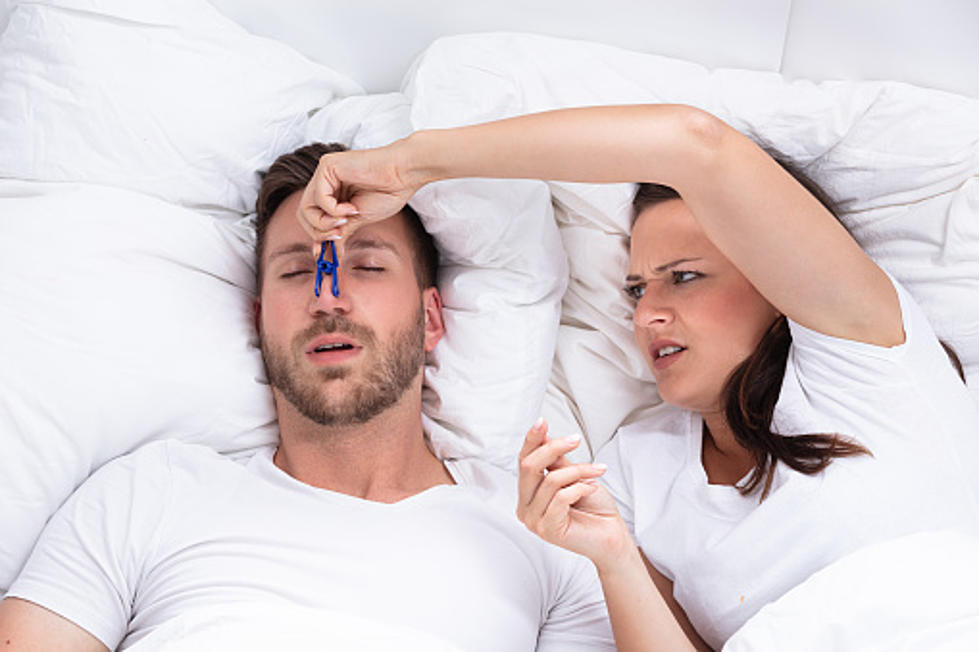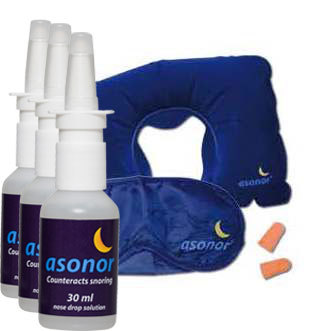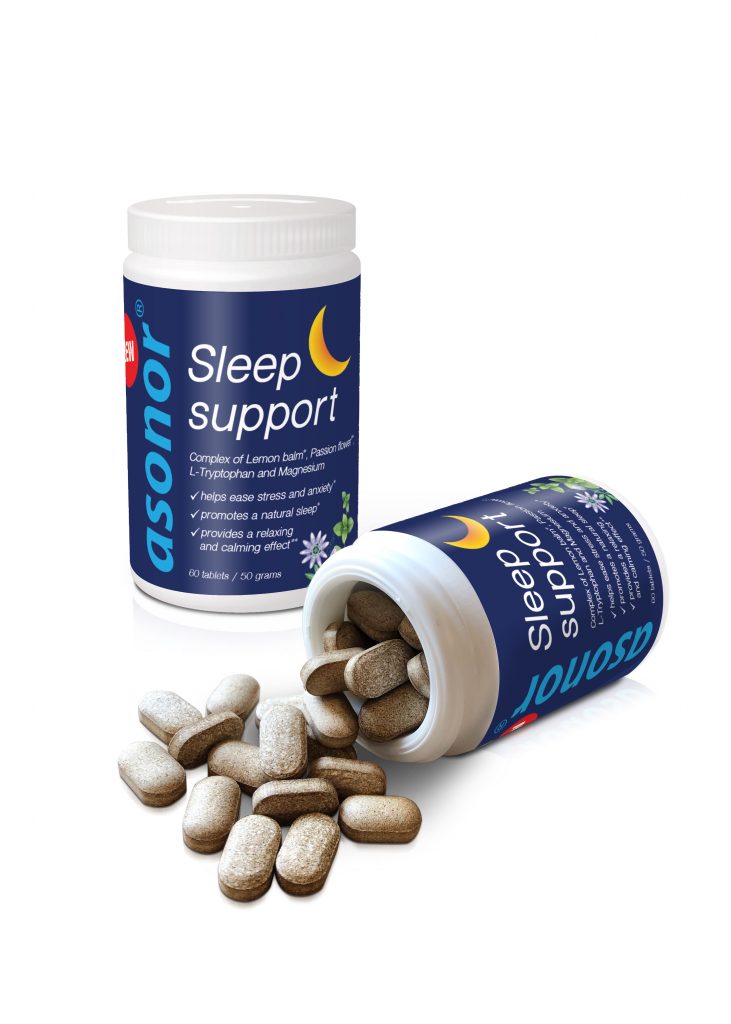In many parts of the world, we witnessed a normal spring where temperatures began to rise and rain showers brought beautiful blooming flowers. But unfortunately, those beautiful blooms also brought misery for allergy sufferers. The sneezing, the coughing, the itch-reddened eyes – for many of us, this is the consequential reality of springtime. In particular, this adversely affects hay fever sufferers, individuals whose cold-like symptoms result from spring-specific allergens. Hay fever symptoms often include:
- adenoid and tonsil inflammation
- clogged ears
- congestion
- coughing
- fatigue
- headaches
- itchy eyes and throat
- red, puffy eyes
- sneezing
- sore throat
Furthermore, for those individuals who suffer from obstructive sleep apnea, springtime allergies can lead to additional complications as allergens often exacerbate snoring issues. This is because allergies cause nasal congestion which makes it difficult to breathe normally through the nose. As a result, allergies often cause sleep apnea sufferers to have more frequent and lengthier breathing disruptions during sleep. Additionally, due to swollen respiratory passages, allergies can make people with mild snoring, snore heavily triggering a range of other health issues. That is why anti-allergy medicines can help reduce snoring at this time for many people. If you don’t snore usually but become a regular snorer during the time of allergies, antihistamines work best for you. But if your snoring continues even after the season of allergies is over, you might want to see a doctor.
Seasonal Allergies, Sleep Apnea, and Snoring
For those individuals who suffer from chronic snoring or sleep apnea, seasonal allergies can compound the problems associated with these two conditions and warrant finding a remedy for allergy snoring or snoring remedies. Furthermore, the onset of allergy-related congestion and snoring as well as other sleep-related issues has become increasingly more prevalent. Simply stated, seasonal allergies could also be the cause of your snoring, especially if you’re already suffering from sleep apnea-related problems.
Dictionaries define sleep apnea as a temporary disruption or suspension of a person’s breathing. This means that during the night when you’re sleeping, you temporarily stop breathing. This temporary suspension in your breathing may occur occasionally or as frequently as 50 to 100 times per hour depending on the level of the disorder. When you stop breathing, you’re not getting the proper amount of oxygen that your body needs and are preventing your brain from re-energizing itself. It leads to cognitive disorders and other brain degeneration-related ailments. Proper sleep is an important factor to stay healthy
Snoring results when the air you inhale is unable to flow properly due to an obstruction in your airway. Since your airways are connected, only a single obstruction is required to cause the tissue vibrations that cause you to start snoring. On a positive note, there are snoring remedies that can be effective remedies for allergy snoring. The first step towards relieving yourself of chronic snoring issues is to understand what causes it and know how to deal with it. If you are unable to resolve the issue, it is best to see a health care expert about it.
Are Seasonal Allergies Causing Your Snoring?
Spring allergens including pollen from grass, trees, and weeds all contribute to snoring problems. By recognizing these allergens and making an effort to avoid them, you’ll have taken the first important steps to solve your snoring issues. Seasonal allergies cause nasal passages to swell and restrict a person’s airflow. This can make it difficult to breathe during sleep. Along with snoring, there are several other allergy symptoms to be aware of including:
- congested sinuses
- headaches
- itchy, reddened eyes
- runny nose
- sneezing
If you’re snoring worsens during allergy season and is accompanied by any or all of the symptoms above, your allergies are most likely the problem. Asonor Anti-snoring Solution is one of the best snoring remedies on the market today and can provide relief from chronic snoring. Additionally, it has been clinically proven in 3 out of every 4 cases tested to be an effective remedy for allergy snoring. That is why it helps to use a time-tested product that has provided relief to innumerable people over the years.
Allergic Rhinitis
Also referred to as “hay fever”, allergic rhinitis can occur on a seasonal basis or year-round, depending on the individual and how prone they are to certain allergens. The diagnosis of this condition is often based on an examination of the nasal passages, the person’s family history, and skin testing. Symptoms include a runny nose and sneezing as well as watery, red, and itchy eyes. Although allergic rhinitis is extremely common, it is not always a key contributor to poor sleep quality caused by chronic snoring. Oftentimes, there are other reasons that contribute to snoring including, alcohol intake, smoking, excess intake of dairy products, respiratory diseases, side effects of prescription medicine, and more.
In the more severe cases, sleeping disorders can and often do develop. There are two types of allergic rhinitis:
Perennial allergic rhinitis
- In the case of seasonal rhinitis (see below), pollen is the culprit. However, in cases of perennial allergic rhinitis, other allergens such as animal fur, dust mites, and in some instances, mold spores can also cause perennial allergic rhinitis. When you experience allergy issues throughout the entire year, it’s commonly referred to as perennial rhinitis.
Seasonal allergic rhinitis
- Seasonal allergic rhinitis more commonly called hay fever, seasonal allergic rhinitis causes snoring in individuals who suffer from this condition. Hay fever is typically brought on during the spring, summer, and fall when the presence of mold and pollen in the air is higher than it is during wintertime.
Whether your snoring issues are attributed to seasonal or perennial allergies or you suffer from sleep apnea, Asonor Anti-snoring Solution can provide the relief you need from most snoring issues. To learn more about this product, contact Asonor today by sending us a message at [email protected] or by visiting our website. Our business representatives are here to assist you with your custom requirements. Call us now!
How Do Seasonal Allergies Cause Snoring?
If you want to how seasonal allergies cause snoring, here is a brief look:
- Nasal congestion: Most often dust, pollens and mold are allergens that lead to inflammation in the nasal passages to product excess mucus and that causes an obstruction in normal breathing, causing snoring.
- Breathing through mouth: Those individuals with nasal congestions usually breathe through their mouth, increasing soft tissue vibrations leading to snoring.
- Airflow is restricted: Mucus and inflammation of the nasal tissues, due to allergies can create a blockage by narrowing the airways. That leads to mouth breathing and snoring all night.
It is best to manage allergies with the use of antihistamines, using air purifiers and nasal sprays to control and reduce snoring.
Common Symptoms of Allergy-Related Snoring
Some of the common allergy-related snoring symptoms include:
- Frequent and loud snoring– It is due to nasal congestion and worsens due to seasonal
- Mouth breathing: Due to nasal blockages, you tend to breathe through your mouth, exacerbating snoring.
- Stuffy nose: Chronic nasal congestion is one of the signs of allergy related snoring.
- Itchy eyes and sneezing: Itchy eyes, sneezing are hallmark of allergies and are often accompanied by snoring.
- Daytime fatigue: Frequent disruptions of breathing leads to poor quality sleep. That causes fatigue and lethargy during daytime.
- Sore throat on waking up: Due to mouth breathing, you wake up with a dry mouth and sore throat as constant contact with air dehydrates the tissues.
How Allergies Worsen Sleep Apnea
If you want to know how allergies worsen sleep apnea, take a look for more information:
- Sleep deprivation: Itching, sneezing and coughing due to allergies can disrupt sleep and increasing daytime drowsiness, fatigue and increasing stress.
- Nasal congestion: Inflammation due to allergies lead to swelling in the upper airways, mucus build-up in the nasal passages and creates a blockage. That leads to difficulty in breathing and worsens sleep apnea issues.
- Increase in sleep apnea symptoms: There is an increase in snoring, hypopnea and apnea episodes due to nasal congestion.
- Inflammation in the airway: Allergic reactions release histamine which causes swelling in the respiratory tracks, increasing the likelihood of narrowing of the airways.
Effective Remedies to Stop Allergy-Induced Snoring
There are plenty of effective remedies to stop allergy- induced snoring which maybe prescribed or available Over-the-Counter. Here are a few:
- Using anti-histamines: Prescription anti-histamines or OTC anti-allergy prescription reduce nasal congestion and allergic reactions.
- Nasal steroidal sprays: Using nasal corticosteroid sprays reduce inflammation in airways improving breathing and reduce snoring.
- Using a HEPA air purifier: It removes allergens in the air such as pet dander, pollen, dust mites and other irritants from the indoor air.
- Elevate your head: When sleeping, use pillows to elevate your head to keep nasal passages open to reduce mouth breathing.
- Rinse with saline nasal spray: Helps flush out allergies, mucus and pollen from nasal passages, to reduce seasonal allergies.
When to See a Doctor?
Sometimes, seasonal allergies get cured on its own while there are times you need to see a doctor, such as:
- Chronic snoring: Despite over-the-counter allergy treatment or home remedies, snoring indicates serious health issues.
- Fatigue: Difficulty in concentration, constant tiredness, with daytime drowsiness is an indication of snoring issues due to allergies
- Nasal congestion: If nasal congestion tends to last longer than couple of weeks or is reoccurring often, you might need prescription medication for the allergic rhinitis.
- Disrupted breathing: If you wake up gasping, have gaps in breathing during sleep due to sleep apnea, allergies can worsen the symptoms.
Conclusion
Snoring can lead to lead to disrupted sleep and when you are affected by seasonal allergies, it becomes worse. It is best to try using anti-histamines, putting a humidifier in the room, using nasal sprays and positional therapy to reduce snoring. It is helpful to use air purifiers to reduce pollen and allergens in the room.
FAQ
Yes, allergy shots can help control snoring due to allergies which cause nasal congestion. By limiting the immune system to allergens, it reduces swelling and improves nasal breathing. It limits mouth breathing and lowers snoring levels at night.
Yes, essential oils help to reduce inflammation, moisturize the nasal passages and promote relaxation. Some of these are peppermint, eucalyptus, and tea tree oil. Although it is not a cure for snoring but it does provide relief.
Allergy related snoring that is impacted by weather is when airborne allergens such as pollen and dust increase during the warm seasons, especially when it is windy. Higher temperatures and humidity can increase allergies, causing nasal congestions and inflammation in the upper respiratory track.
Yes, as children have a weaker immune system than adults, they are affected more by allergy related snoring. They are more susceptible to sneezing, coughing and itchiness. Using antihistamines, OTC allergy medicines and saline sprays can help them sleep better.







